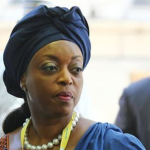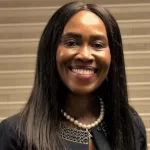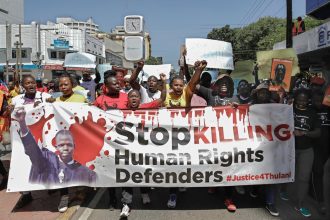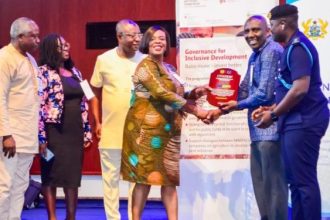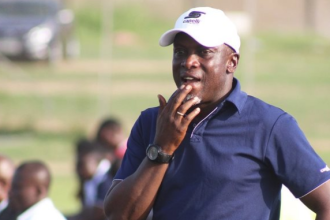One of the most notable successes in the implementation of the international education agenda over the past 30 years has been the move towards ensuring equal numbers of girls and boys in school.
- The exception to this success includes sub-Saharan Africa, where girls remain far less likely to go to school at any education level. Over half of all children out of primary and secondary school are in Africa.
- In addition, while the situation of girls and young women has improved dramatically overall, some remain trapped in pockets of disadvantage due to location and poverty but also due to other social and cultural characteristics. In Afghanistan, the mass exclusion of girls from education means that 60% of girls are not in primary (compared to 46% of boys) and 74% of girls are not in lower-secondary school (compared to 50% of boys).
- New calculations by the Global Education Monitoring Report reveal that progress since 2015 has resulted in 50 million more girls enrolling in school. There are also 5 million more girls completing each level of education from primary to upper secondary education now than there were in 2015.
- UNESCO celebrates this progress but calls on efforts to double down in the remaining years to 2030, given that there remain 122 million girls out of school around the world.
- UNESCO calls on governments and partners to urgently invest in the following critical areas to ensure that all girls complete a full cycle of basic education by 2030:
- Focused interventions on marginalized girls: Support marginalized girls’ access to 12 years of safe, free and quality education.
- Collection, analysis and use of data on girls’ education: Strengthen country capacity to collect, analyse, and use sex-disaggregated data as well as data on intersections between gender and other characteristics as a solid basis for policymaking.
- Gender-responsive legal frameworks, education sector plans, policies and budgets: Institutionalize gender-responsive legal frameworks, education sector planning, policies, analysis, budgets and implementation for education systems that promote gender equality.
- Gender-transformative teaching and learning materials: Ensure equal representation of women and girls in curriculum and textbooks with material free of biases and challenging stereotypes and gender norms.
- Female education workforce: Ensure that there are sufficient, well-trained female teachers in the right locations, at all levels of education, especially in leadership positions.
- Affordability: Reduce direct and indirect costs for families through cash and in-kind transfers, scholarships and stipends.
- Safe, gender-transformative and inclusive learning spaces: Provide school meals and water and sanitation facilities in schools, especially single-sex toilets and menstrual hygiene management. Adopt a holistic approach addressing the drivers and root causes of violence both at school and community levels.
- Comprehensive sexuality education: Implement such programmes, teaching girls and boys how to be safe and healthy, how to protect themselves and how to respect each other.
- COVID-19 recovery: Use the post-COVID-19 period as a unique opportunity to build gender-transformative education systems, adopting a system-wide approach to school reopening, prioritizing action to bring all girls back to school, prioritizing the leadership of girls and women and promoting an integrated and coordinated approach that addresses girls’ holistic education, health and protection needs.
New data drawing from the UNESCO Institute for Statistics
- There are 22.5 million more girls in primary school, 14.6 million more in lower secondary and 13 million in upper secondary education now than in 2015.
- Completion rates of girls increased from 86% to 89% in primary education, from 74% to 79% in lower secondary and 54% to 61% in upper secondary education. That means that fivemillion more girls are completing primary, lower secondary and upper secondary school every year now than they were in 2015.
- Girls are now outperforming boys in reading across all education levels and country income groups. They are also performing the same as boys in mathematics.
- The proportion of teachers that are female increased across primary, lower and upper secondary education, cementing the fact that it is a feminized profession across the board. The proportion of teachers that are female at the pre-primary level dropped by less than one percent and remains heavily female, at 94%.
- There has been little change in the proportion of schools with single sex toilets, falling from 80% in 2016 to 79% in 2022 in primary, but remaining constant at 91% in lower secondary.


